Hubshots Episode 176: Enterprise Attribution reporting in HubSpot
Welcome to Episode 176 of Hubshots! HubShots - APAC's number 1 HubSpot focussed podcast - where we discuss HubSpot tips & tricks, new features, and...
If you're new to HubSpot, we guide you on where to start, how to do it right, and train you to make the most of the platform.
Review your HubSpot portal to uncover issues, spot growth opportunities, and ensure you're maximising its potential.
Unlock business growth with automation and attribution. Implement best practices and execute marketing campaigns.
HubSpot On-Demand
HubSpot Training
HubSpot Websites
HubSpot Campaigns
Virtual HubSpot Manager
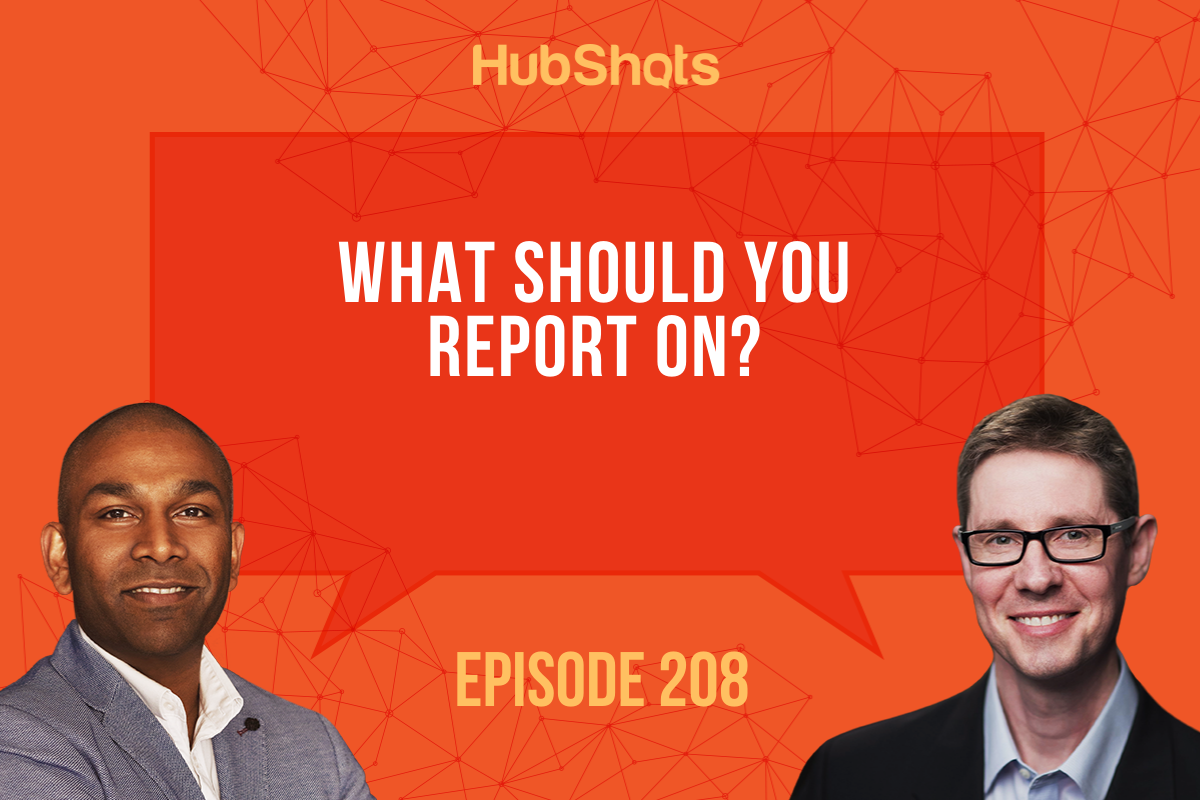
This episode we discuss the key items to report on for your stakeholders, clients and team members. Plus the awesome update to the Gmail extension.
Listen to the episode here: https://soundcloud.com/hubshots/208-what-should-you-report-on
Plus we follow up on our comment last time about rolling back automation of reports, and answer a listener question about what reporting to provide to small business clients.
Welcome to HubShots - APAC's number 1 HubSpot focussed podcast - where we discuss HubSpot tips & tricks, new features, and strategies for growing your marketing results.
HubShots, the podcast for marketing managers and sales professionals who use HubSpot, hosted by Ian Jacob from Search & Be Found and Craig Bailey from XEN Systems.
Recorded: Thursday 25 June 2020 | Published: Tuesday 30 June 2020
It is easy to get totally swamped with day-to-day pressures - especially in the past few months.
As a result you can easily skip the important work of considering trends, changing behaviours and new opportunities.
Is now a good time (end of financial year in some countries) to plan to take time out to think critically about your marketing strategies?
The Revenue Attribution report is a good way to drill into what channels, content, touches are driving final revenue:
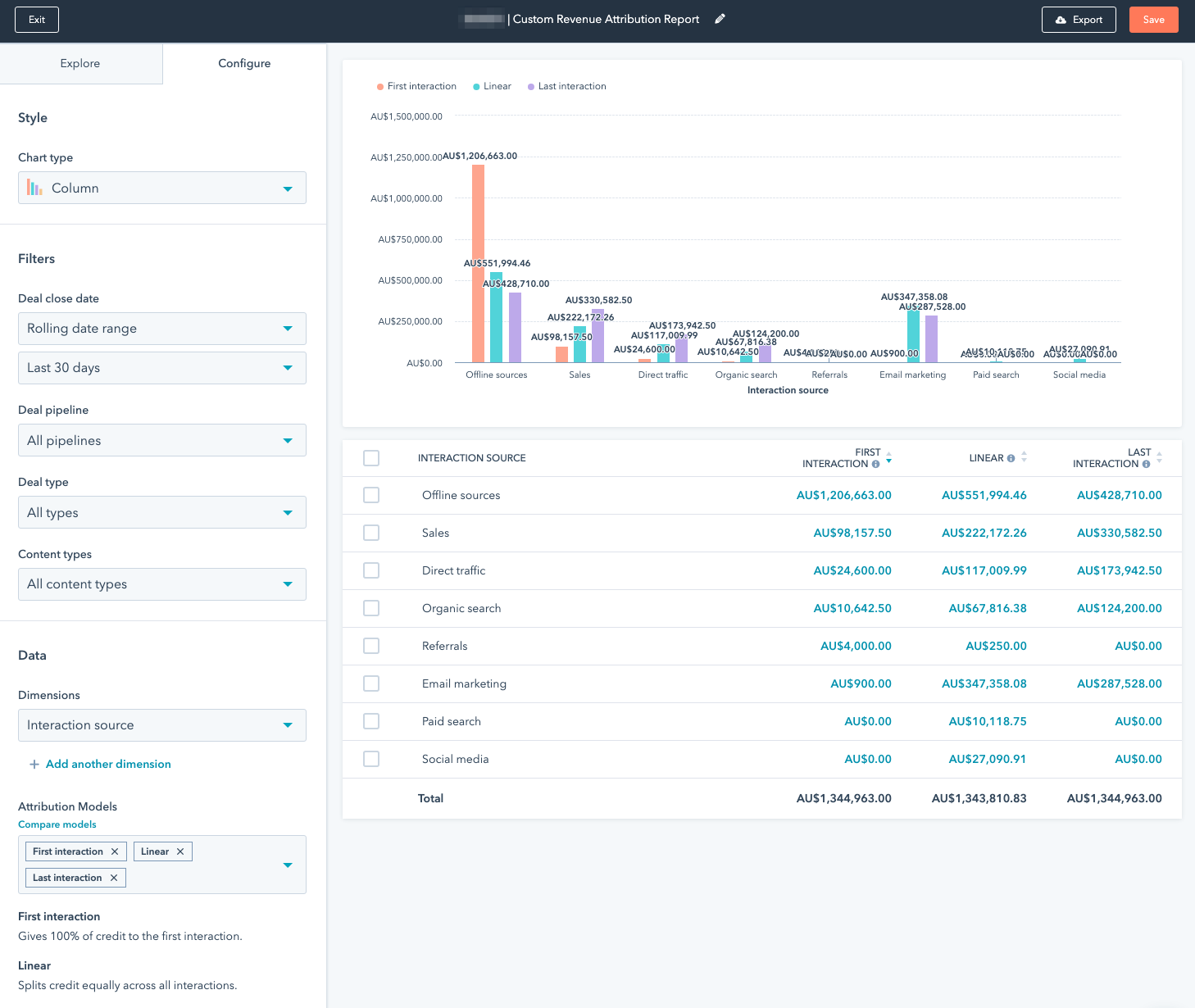
Notice how the different attribution models highlight the role of channels such as email marketing, organic, social and paid.
It demonstrates how important the journey from first contact through to deal signoff is. Email is often one of the biggest supporters of closing revenue.
The ability to associate emails with specific contacts, companies, deals and tickets in HubSpot via the Log option in the Gmail plugin.
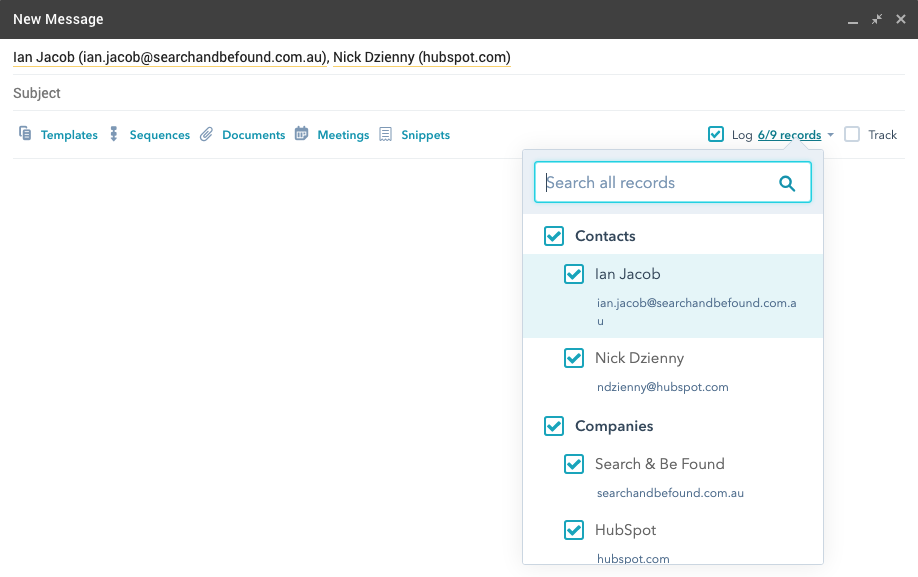
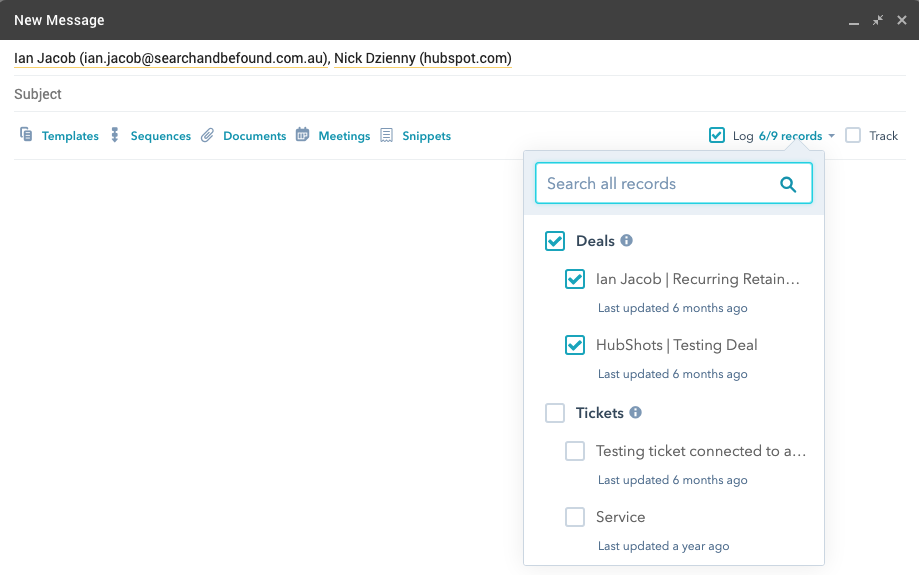
From Chad: following on from our last episode where we chatted about the downside of automating everything:
“I wanted to reach out and see if you two could provide me and my business partner with some advice. I know in the last podcast you talked about undoing some of the automation for reporting. My question is this, what do you typically include in the reporting? We work with a lot of smaller clients and we are looking to determine a good process for the monthly/quarterly check-in.”
HubShots thoughts:
HubSpot has improved the import from Google docs process - preserving the formatting better. Import is available from the Advanced toolbar, after you switch over to editing content:
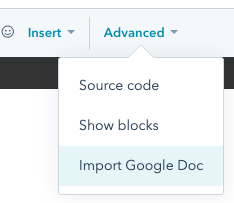
However, we never really want to retain the styles - we always Clear Styles after importing anyway:

Podcast creation has exploded (everyone is creating a podcast these days). Audio consumption is growing.
Twitter is adding voice notes, 2 min 20 sec audio snippets. Think about launching your own 2.5 minute podcast. We’re going to be testing it as soon as we have access.
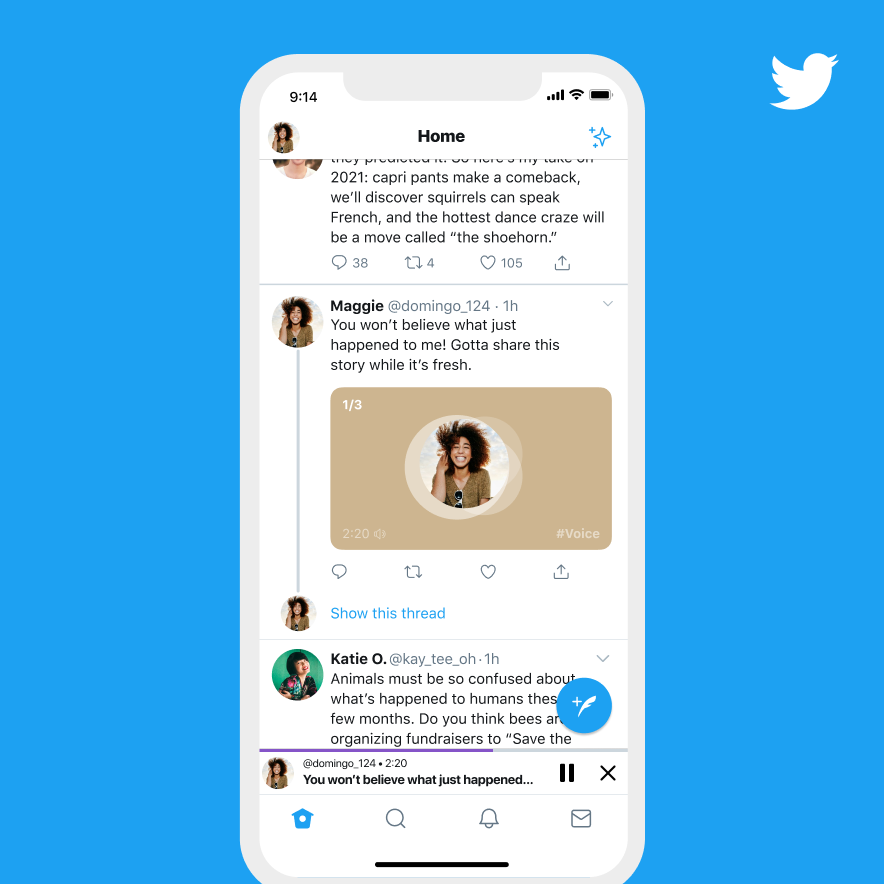
Also more focus on blocking tracking scripts eg hey.com blocks all email tracking:
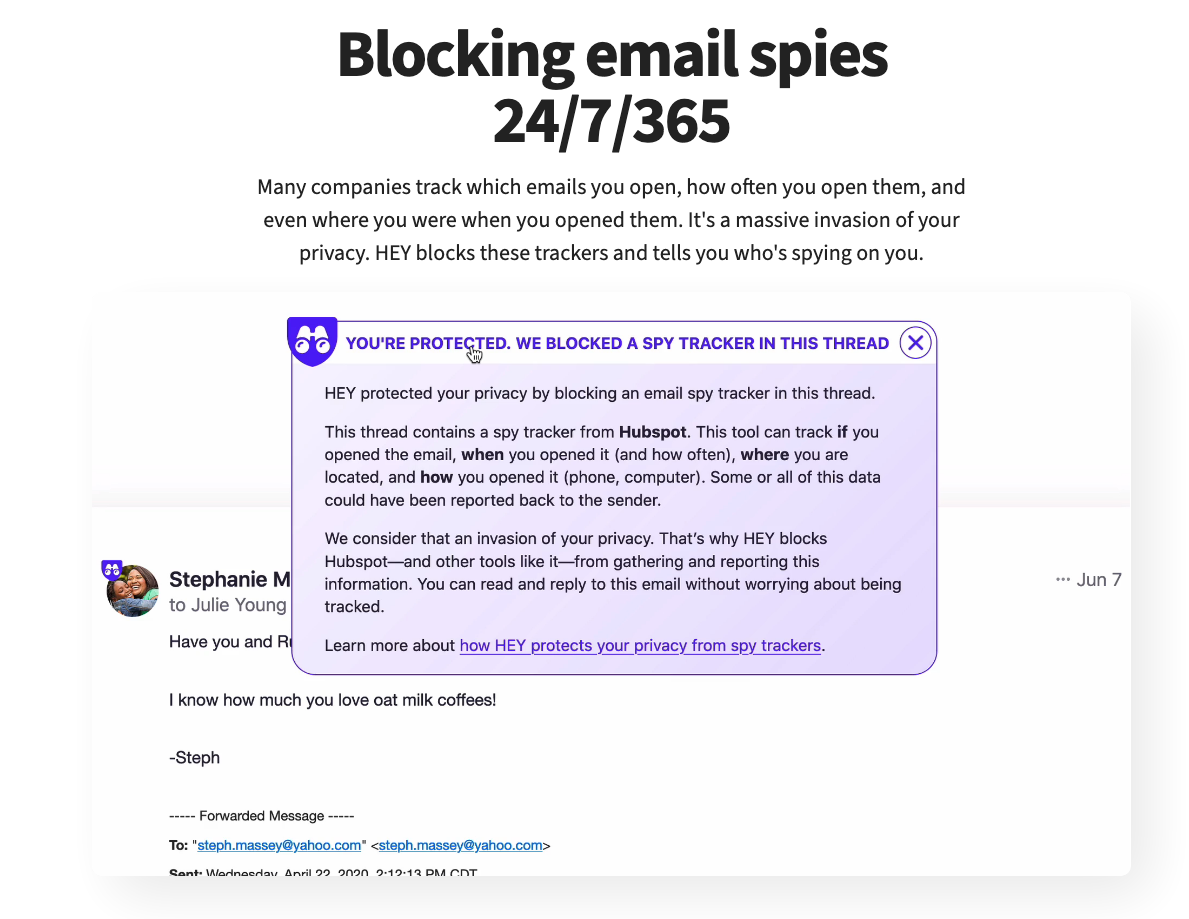
Some interesting bits we got from Apple.
The opportunity here is for maps and apps.
Some other things because Ian likes everything auto!
“A flower is simply a weed with an advertising budget”
Rory Sutherland (Alchemy)
According to Adobe, using their Adobe Analytics data, online shopping has increased rapidly to exceed holiday shopping season volumes.
A simple overview from Facebook about how ML is used for targeting and placing ads.
In the article they also reiterate that they don’t use any audio from your phone speaker for targeting ads or your newsfeed.
Connect with HubShots here: HubShots YouTube channel - HubShots Spotify channel - HubShots Facebook group - HubShots Twitter - HubShots Instagram - HubShots LinkedIn
Connect with Ian Jacob on LinkedIn and Craig Bailey on LinkedIn
You can also sign up to receive our episode updates by email.
Please rate and leave us some feedback as this helps us improve and reach more marketers.
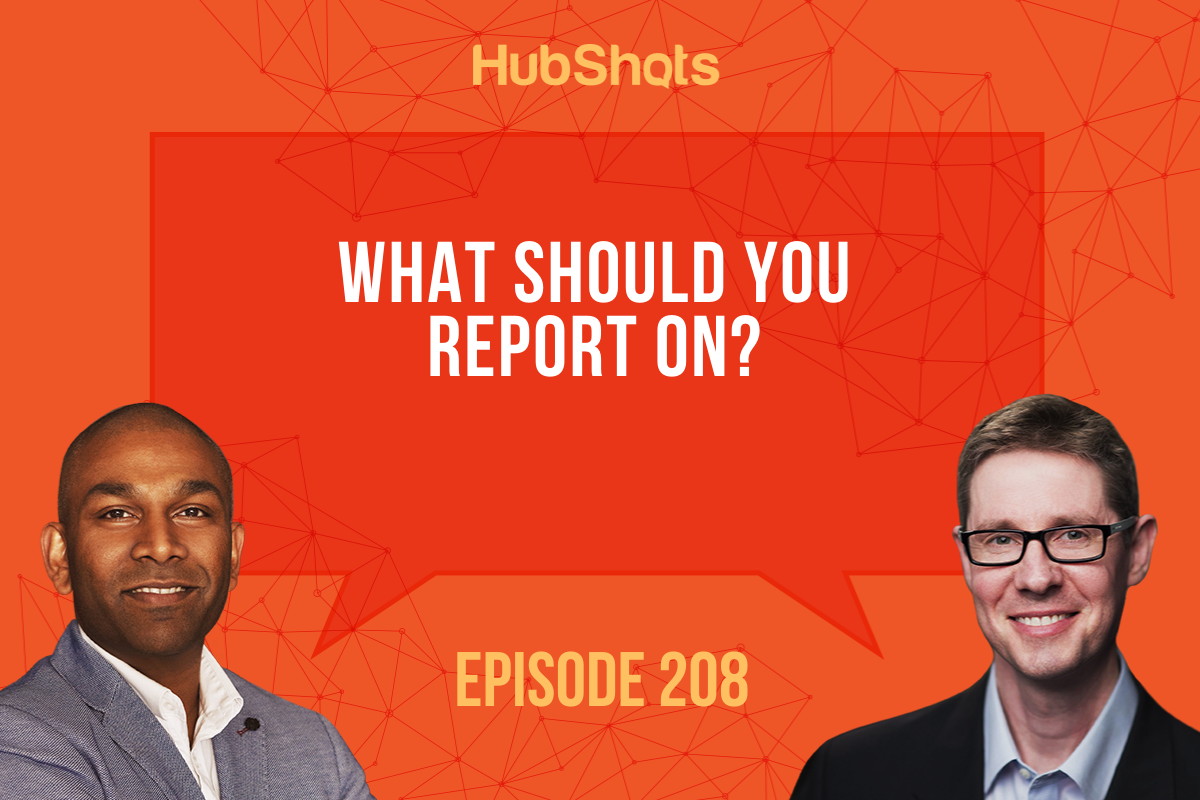
- Hi everyone, welcome to HubShots, episode 208. In this episode, we discuss the key items to report on for your stakeholders, clients and team members, plus the awesome update to Gmail extensions. Plus, we follow up on our comment last time about rolling back automation of reports and answer listener questions about what reporting to provide to small business customers and clients. You're listening to Asia Pacific's number one HubSpot focus podcast where we discuss HubSpot tips, tricks and strategies for growing your sales marketing and service results. My name is Ian Jacob from Search and Be Found and with me is Craig Bailey from XEN Systems. How are you, Craig?
- I'm well, Ian, and I'm trying to think critically.
- Now, tell me, why are you trying to think critically, Craig?
- All right. So, . I wanted to mention this importance of critical thinking because I'm sure many listeners, especially in countries where it's heading to end of financial year, in Australia where end of financial year is June 30 and I know that's the case in many places around the world, it's really easy to get swamped with just day to day pressures, plus with coming... Well, we're still in the midst of a crisis, so many things happening the last few months. It's just go go go. Always on the back foot putting out fires. You've probably skipped thinking critically, critical thinking about things. There's only so long you can do that before it starts to eat away at you. So, I just wanted to I guess put a reminder when this goes live, which will probably be past the end of financial year, now's a good time to plan to take time out to think critically about your marketing strategies, your goals, how you're going to embrace the change that is present and is continuing to adapt. You've got to take that time out. I've been very fortunate the last week or two. Actually, just, I had one, last week, I had the whole afternoon I just set aside for critical thinking, thinking about the business, some of the new products we're going to push out into market, just thinking about team leadership, a whole bunch of things and just having the three or four hours with nothing else, turned off email, turned off all the other stuff just to think critically and plan. It's just a wonderful activity. So, I'd encourage listeners to do that. I don't know. Have you had time to do that, Ian?
- I try to do that every week, Craig, on a Monday. I block out the first bit of the day to do that in the week. And I think that does help, and like I've said to our listeners before, and like we try to do is make sure we're journaling and being grateful every day. Because it really puts things into perspective and when I was speaking to someone today, whose been in business, gone through a bit of a tough time and then was thinking, really, I should've been here but I'm not, but then when I look from the outside and I look in, I'm like, you've actually got to be really proud of where you've got to and I don't think she realized that. So, yeah, there you go.
- I think that's a really good reminder as well. Part of critical thinking is reflection on what you've achieved. It can be so easy to think, oh, everything's really difficult, we haven't achieved anything, but actually, if you stand back and take stock, you probably have.
- That's right. Now, Craig, onto our HubSpot marketing feature of the week and since this is a lot around reporting and types of reporting, we're going to talk about revenue attribution reporting reminder. This is if you have a HubSpot marketing professional and enterprise.
- That's right. A good reminder about, this has been here for a while and we've discussed it on the show before but the revenue attribution report is a really good way to drill into what channels, content, what touches are driving final revenue. So, as the name implies, it's about revenue it's pulling from deals in your HubSpot portal. We've got a screen shot here where you can slice and dice it and the really good thing I like about it, well, two really good things that I think are useful. First, the kind of attribution model you can have and in the screenshot, I've just shown the difference between three of the attribution reports, there's first and last interaction, but also in the middle there's kind of this linear approach. It's really interesting I think to see how if you just look at first interaction, that'll be really skewed to one channel, whereas if you bring in others like linear and last interaction, it really highlights things such as email marketing, really helping in terms of driving that deal through to completion. Their first interaction might've been another channel, but email marketing really works in this particular case. Also, the other thing that's really good about this report is you can drill into any of them. So, you can actually click onto the dollar numbers and you can see and outline it just gives you this timeline of contacts, then you can drill into a contact and see all their touches, how they've come about. We find this really useful and why this is such a good item for this week's episode, given the listener question we've got coming up later in the show, it's because this is where it really matters, the revenue and part of your reporting is, well, what drove that revenue? Sometimes digging into each individual deal, pulling out those insights, looking at how those people came in, that's the hard work we have to do as marketers and later we'll talk about how automation can sometimes just avoid and overlook all of that. That's where the gold is and this attribution report from HubSpot is a great way to drill into it.
- Craig, I just want to add, if you sometimes look into contacts, you will notice that some of the things that we would do in terms of paid advertising, so, in terms of remarketing or retargeting, you will actually see people are clicking on those ads to come back as another channel, right? So, it's really interesting. People go, it doesn't matter, don't worry about that, but you'd be surprised, sometimes there is that recoil effect, or people forget and then they see something, they go, oh, hang on, I was researching this and I need to back. You'll see that in the timeline if you go through. So, it's actually... As much as you've got this report, I'd also encourage people to delve into some of the context that have history and see their journey, because it can really highlight to you things, especially if you're doing lead scoring and you go, well, look at these deals that closed and these were good customers that we really liked. What was their journey? What did they do and what were those points? And just go through them individually. We did that with a customer a little while ago to work out some of the lead scoring and I think that made a massive effect because you could kind of see the journey that people had gone through to get to the end. All right, Craig, onto our HubSpot sales feature of the week. This is the HubSpot Gmail extension that has got so much better.
- This is so good. Just talk us through this. I love this little update.
- So, listeners, if you are using Gmail as your work email, you will probably have seen... You used to have a log-in track setting on your email and possibly this week and as this roles out, you will start to see it's showing what it's logging against, and it's got a number, it'll tell you the number of records that they're logging the email against. So, where this is really great is that if we've got multiple people on the email or you've got deals or you've got tickets, you can now select and go, okay, well, I only want to send it to these people or I want to log it to this company, I want to log it to this ticket or this deal. So, if you've got multiple deals in a company and people that are discussing, you now have the option to do this which is fantastic.
- This is so good. We've got screenshots in the show notes. Listeners, if you're wondering what we're talking about, you'll see the screenshots will make sense and you'll just go, ah. One of those features that when you see it, you'll go, ah, how could we have not had this before? We could never go back.
- That's right. Now, I guess I will have to check, Craig, that it has rolled out on the Office 365 update and I'll have a look at that with a customer of ours a little later on and tell listeners, or if you are listening and it has happened, let us know. Now, Craig, we're onto our listener question of the week and this is from Chad and this is following on from the form of our last episode, we talked about the downside of automating everything. His question was, I wanted to reach out and see if we could provide any insights and advice, more about what do you typically include in reporting, especially for smaller business clients and what's a good process and monthly check ins to do to facilitate that?
- Yeah, and thanks Chad. I'm not sure if we had his permission to mention him in full, but Chad, so we haven't mentioned your last name. Thanks for the question. Really good question. Just to reiterate in case listeners didn't hear the episode last week, at the start of episode 207, I talked about the fact that automation can sometimes be a bad thing. As marketers, we try to automate as much as possible and make things more efficient. But, in reporting, you can fall into the trap where you just create these automated reports, send them to the client and never talk to them. Well, we actually really want to check in with our clients and so, Chad's question is, well, what do include in the reporting and in his case with smaller clients? The first thing I'm going to say is that we tailor our approach to each client based on their goals. So, before, we used to just have, here's our standard reporting, this is our process, cookie cutter, here's what we do, send it out, quick follow up, call bang, whatever, or even worse, we'd say, if you've got any questions, let us know. That was, we realize now, a big mistake. We thought we were being more efficient and they would just contact us if they had questions but now we realize they never look at the reports, they have no idea what's going on and if they do look at the reports, it's not answering the questions about what's working, it just tells them what's happened, it doesn't actually tell them why. So, the first thing is we tailor it to each client, some of our clients want in depth details, they want to drill into the details, others aren't. Most of them I would say, don't want all the details, they just want the highlights. What we've noticed with clients is kind of a maturity cycle that they go through. So, a really immature client wants to know about rankings. Oh, what's my rankings for this particular term? Then they kind of progress a bit and they're like, oh, well, I don't really care about the rankings, I actually care about the traffic and then they move to, well, what's the engagement when they get to the site? Then they start getting more mature and they're like, oh, what are the leads? What leads is this generating? Then they're like, well, what's the quality of the leads? And then ideally, they're talking about, well, what customers are we getting? What's the life cycle and what am I getting? And then of course, which customers are turning into repeat sales if that's appropriate for their business. So, the way we tackle that, we're obviously trying to get clients towards the bottom end of that when they're talking more about leads and customers and revenue. So, we do automate creating reports where possible, but we don't automate sending them to clients, instead, we analyze the reports, we pull out insights and we organize to discuss with the client. Now, do you follow a similar process, Ian? What kinds of things... We've got in the show notes listeners can... We've got actually things we include in the reports, we'll go through it in the second bit. Do you follow a similar process? What's your approach, Ian?
- It is a very similar process, Craig, and I think as we've shifted towards working more with sales teams and with marketing teams directly and together, we have this conversation, especially about leads and lead quality and what's converting to an opportunity in a customer. So, that's a really key metric. To be honest, we don't even look at traffic stats beyond a certain point. We do keep an eye on it. Like we want to know is it going up or down? But really, the lead indicator here is what inquiries are we getting and what stage of the journey are they at? That's a really key aspect. So, in HubSpot is having those key reports and now that we can create more dashboards, we really utilize that. So, we have dashboards, especially with one of our customers, they have a weekly dashboard. So, we make sure that weekly data's getting through and we look at even key metrics even around when people are inquiring, but now even I send the customer's survey feedback when they've inquired five days later to find out what the person's experience was with that sales person, they contact them and I've been getting really interesting responses which has been great, but that's now another metric we include in the reporting and that we discuss on a weekly or fortnightly basis.
- I think that's really good. A few other things I'll just highlight, depending for some clients we talk about this, some they don't care, but cost of acquisition, cost per lead, we do go into those pieces as well, depending on the volume that they're after and also what worked, what didn't. The more mature our clients are, the more they'll say, ah okay, what worked, what didn't? Okay, it didn't? Great. What are we going to do about it? So, they're often quite happy to hear what didn't work as well as what did. And then we normally finish up with what new ideas we want to test and then the plan for the next month. Like you, we rarely talk about traffic or social engagement, rarely talk about rankings. The only caveat I'll say to that though is unless the client is specifically focused on an SEO project, and they've identified a whole lot of keywords that they do want to improve around organic, then of course, that's when rankings would be part of that and also the traffic it drives. But yeah, that's really it. I hope that's helpful to Chad. Let us know, but the summary would be, it's a mix of things. It's tailored for each client and there's a focus on leads and ideally if possible, revenue attribution.
- All right. The HubSpot extra of the week, this week is the improved import to blog from Google Docs. Now, people, you might not know that it's there, but it is and now it's better. So, previously if you'd imported stuff, you've probably got lots of characters and things in format correctly. Well, now it handles it, doesn't it, Craig?
- Well, the way it's better is that it pulls in all the formatting and it does preserve the formatting better. But I don't know a use case where you want to do that. So, the first thing we do after importing is we go to Clare Styles to clear it all up which I'm happy to say works really well. So, I think that... I don't know for sure, but I suspect the difference is that they're preserving formats in a more standards based way rather than all this custom styles that they used to have.
- All right. Now, our marketing tip of the week, Craig, is Twitter adding voice notes.
- Yeah, it's rolling out for some IOS users. We don't have it yet, but when we do, we will. What it means is that you can record a 140 second voice note. So, 140 seconds originally Twitter was 140 characters. So, there's a bit of a legacy kind of trend they're following there. But that's really about two and a half minutes, just under two and a half minutes and the thing I'll add is this audio consumption component is growing. Have you noticed that every man and his dog has a podcast now? It seems like in just in the last two months, everyone has a podcast. It just suddenly exploded out of nowhere. Not out of nowhere, but...
- Well, we knew it was coming, right?
- There's so many companies I've seen who are announcing their first episode of a podcast. I think that's because the tools are so easy these days, setting up a podcast is really easy and of course, Twitter's showing, yeah, well, audio is really big, and so, that'll be big. So, we're actually looking, well, how can we launch a two and a half minute podcast? So, we'll be having little 140 second episodes that we'll be putting on Twitter only. Watch this space.
- I'm excited, Craig. Now, inside of the week, Craig, is email tracking will continue to be less accurate and we have seen this from certain providers and even if you think about Apple's announcements this week, these things are going to get harder. Yeah, privacy is growing, which is good and email tracking is getting blocked. So, we've just got a screenshot, this is from hey.com and if you've been following lately the hey.com's a new email re-thinking, which is really nice. I managed to get my invite finally. I'm in there. So, I really like it. For those of you who don't know it, you can check out the link. But they've actually... One of their examples from their site, which we've got a screenshot, is they said, you're protected, we blocked a spy tracker in this thread. This thread contains a spy tracker from HubSpot, because you know how HubSpot has the little tracking pixel? We've blocked it. We've protected you from these spy trackers. So, there we go. HubSpot in this particular example. The point about this is that this is not an exception. This is going to become the norm. So, in future, the open rates on your emails, they'll keep going down because they will just be getting blocked and they won't count as opens. However, clicking will still be logged because that's based on UTM parameters as opposed to a spy tracking pixel Ian, but UTM parameters. So, just be aware of that and your email open rates will continue to become less accurate.
- All right, Craig, we've got a resource of the week. I'm going to quickly go through it. For those of you who don't know, we love everything Apple around here. So, I watch the key note which is the developer conference that is just taking place and what I love about, there's some interesting stats which gives us a perspective of what's coming in the future. So, talking about voice, Siri gets 25 billion requests a month. Just think about that. 25 billion requests, Craig.
- Yeah, but Ian, how many of them are unique? How many of them are repeats from people going, no Siri, I meant... No, Siri, no, I meant, I meant.
- Like my son's, hey, Siri, can you do this maths equation for me? Or tell me what the weather is.
- I don't have an answer for that. Is there something else I can help you?
- There you go. All right. What they were saying was, with Siri, there are 20 more facts, 20 times more facts than three years ago. So, obviously that data is building up. What's actually really interesting they can run neural detection on the device. So, I think the devices are getting to a stage now where there is so much computational power on these devices in our pockets that they're able to do a lot of things on the device, which is fascinating.
- So, what does that mean? Does that mean it's per device or like if you upgrade your phone, get another phone, does it transfer that learning over or is it done on the fly? It's not a historical thing or? Yeah.
- Because it builds a pattern over time. So, it is obviously done and stored on the device, but I don't know whether when you migrate... I'm assuming that when you do, it should be transferring that because you're upgrading a device, I'm assuming Apple would've kept that. They're not going to start again. So, I would suspect it goes... Another thing that they said was the 40% increase in messages and the two times increase in shared conversations, now, you can see Whatsapp has a market and so does WeChat, and I think what Apple's trying to do is get into that market and have a part of that. So, just all the improvements they've announced with messages and what's going to happen ahead is actually really interesting and even using the neural detection and everything on the devices will drive a lot of that. Here's an opportunity, listeners, Apple Maps is going to really do a big push on places and make it richer. So, if you have a store, a restaurant, a business that has a shop front, this is an opportunity for you. I'd be getting on there, learning more about it and how to actually utilize it because they're going to push this more to the four so that people can actually get to where they want to be at the right time and get what they want in the right moment. Even to the point where they're making these, what they call applets, which is a small part of an app, and can be read by the NFC, the QR code, messages and maps, and they're basically trying to create something where it just makes it far too easy to rock up somewhere and point at your phone and go, okay, I need this, I need to make an order. I've got to download this app. It can just download a part of the app, fulfill a transaction and you're off. And there's an opportunity for listeners to think about, well, what does that mean for the businesses we work in? So, there's some fascinating things coming and I love cars. One of the other things about Maps, they've got EV routing based on the car you have. So, I understand the car and where those charging stations are and the next one is rolling out now in 2021 is a digital key for a BMW five series where you can unlock the car, start the car and you can share the key, Craig. So, if I had the car, I can share the key with you if I knew that you were coming to pick me up, I could share the key with you without actually having to give it to you and you can pick up the car and it'll probably tell you where the car is too.
- Yeah, these are all the things that seem... Like that's not hard, right? There's no technology breakthrough to do that. It's just about implementing it well. It's all about the execution, isn't it? Making it easy. I would love to just have my phone for everything. My front door, my office door, my car, everything and also replaceable, so I could easily share it across all my phones, you know if I had multiple devices and things like that, it just seems so much better. I don't know why it's taken so long. Anyway, doesn't matter.
- I think a lot of it has to do with integration into the cars. They run a lot of very different systems and lots of different control units as I've learnt over the time of owning cars and having mechanics that we help, the number of control units in a car and the number of detection systems has really, like it's gone up considerably. So, everything has to talk to one another and obviously having Apple Car Play in cars, was their first step to get through to all of this. Now, I think there was an astounding number, it's like 80% of cars on the road now have Apple Car Play. So, I think that was step number one. This is step number two. Now let us use this to do everything else. So, there you have it. All right, listeners, as we finish, our quote of the week, it says, and this is from Rory Sutherland, Craig.
- Yeah. So, Rory Sutherland, he's written a book called Alchemy, which I'm enjoying at the moment and thank you to Kylie, who recommended this book to me. Here's the quote, "A flower is simply a weed with an advertising budget." That's out of context. Within the book, it's a wonderful analogy for marketing in general and I'm really enjoying the book.
- That's gold, Craig. Now, listeners, there are some bonus links. When you have a chance, have a look at them. Again, we would love you to connect with us on LinkedIn. Please connect with us, tell us you listen to the show, because everyone connects and tries to sell us something. So, connect, listen to the show and we would love to connect with you, have a chat and thank you to all the listeners that send us feedback and questions, we do appreciate it. Also, you can go up and sign up on the site and you will get a weekly email of the episodes that are coming out so you can get a link directly to it. Well, Craig, until next time.
- Catch you later, Ian.
- Thank you for listening to this episode of HubShots. For show notes, resources, HubSpot news, including practical strategies you can implement, visit us at HubShots.com.
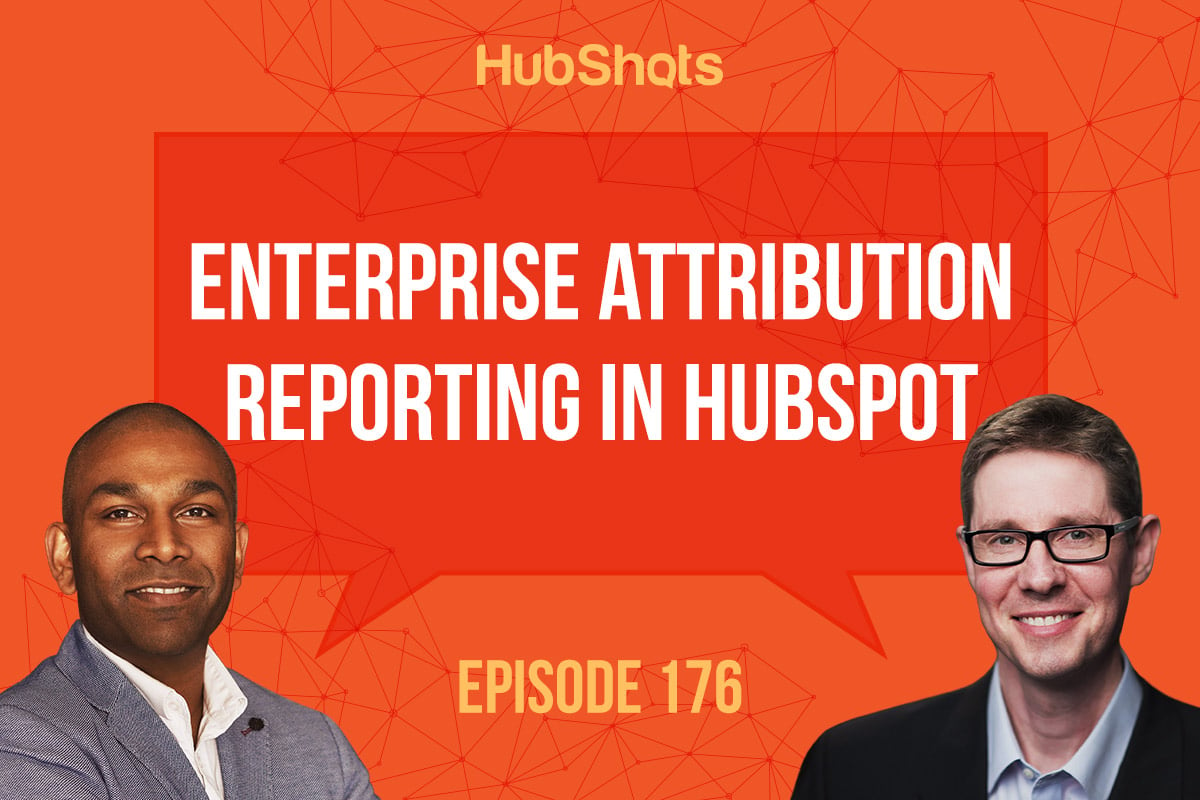
Welcome to Episode 176 of Hubshots! HubShots - APAC's number 1 HubSpot focussed podcast - where we discuss HubSpot tips & tricks, new features, and...
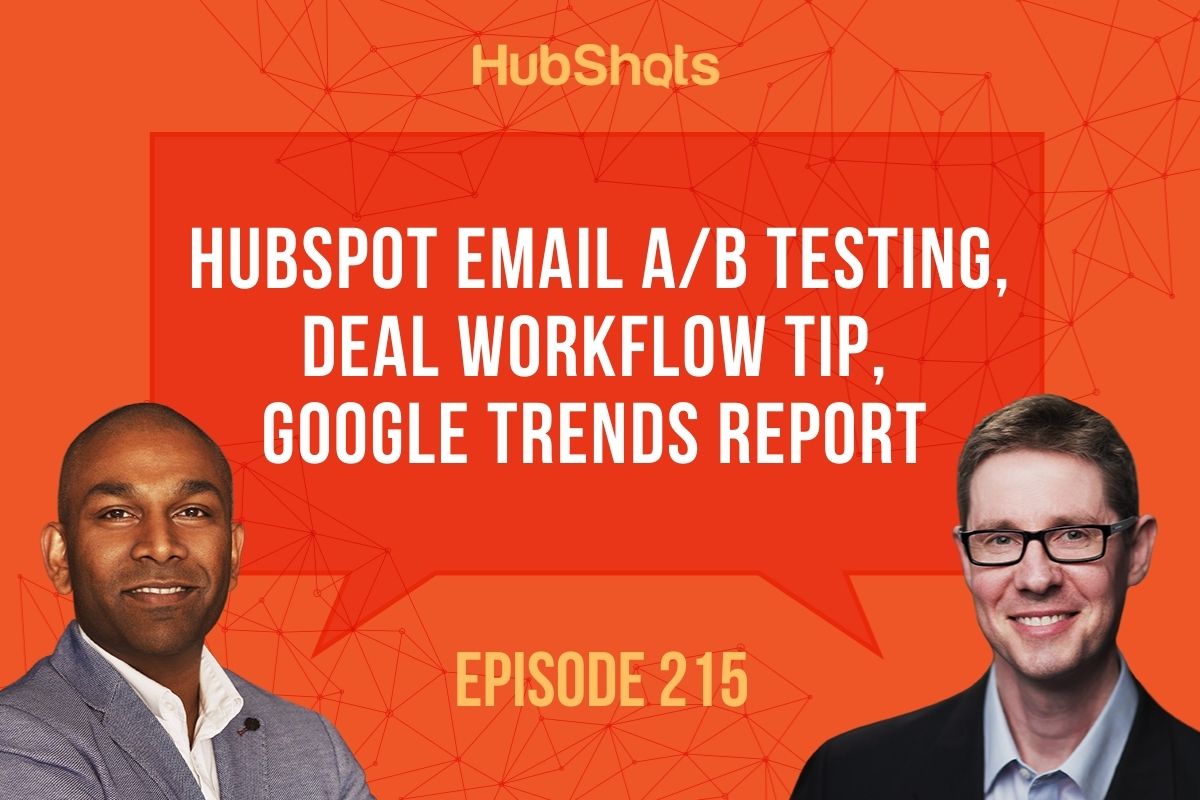
Welcome to HubShots Episode 215: HubSpot Email A/B testing, Deal Workflow tip, Google Trends report This episode we discuss the beautiful Google...
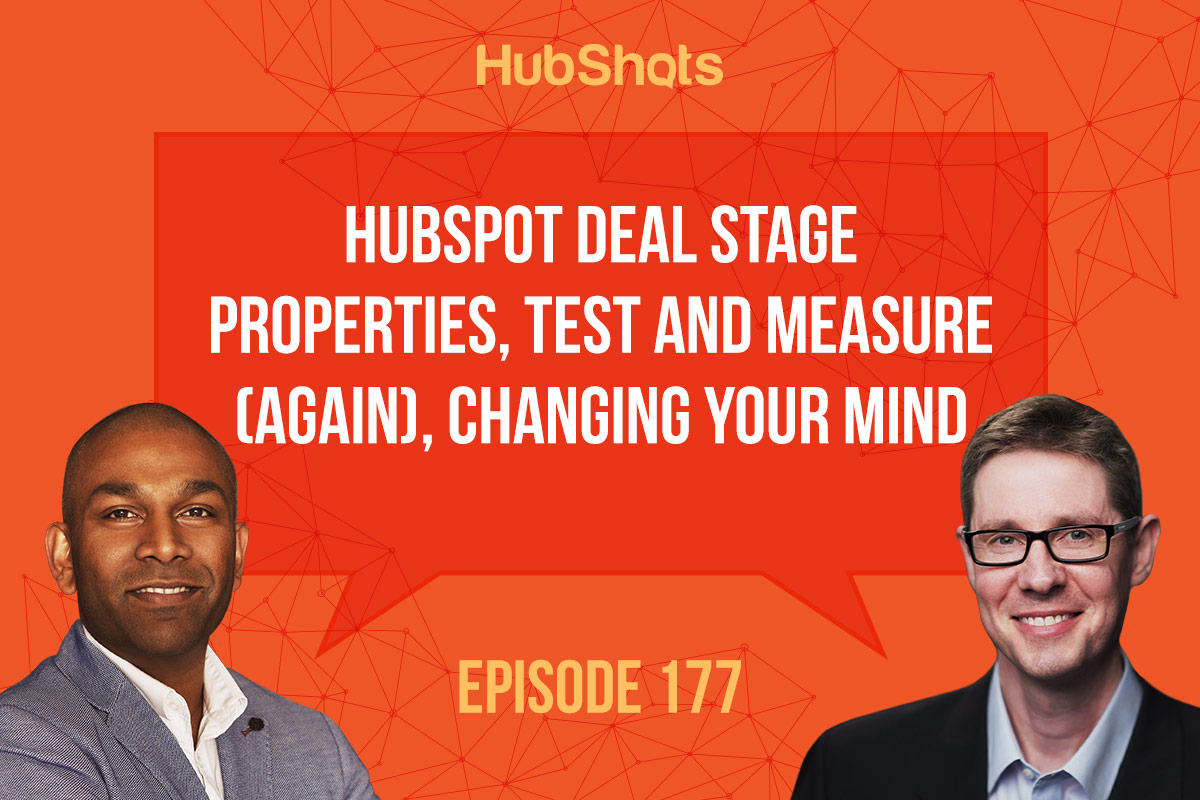
Welcome to Episode 177 of Hubshots! HubShots - APAC's number 1 HubSpot focussed podcast - where we discuss HubSpot tips & tricks, new features, and...